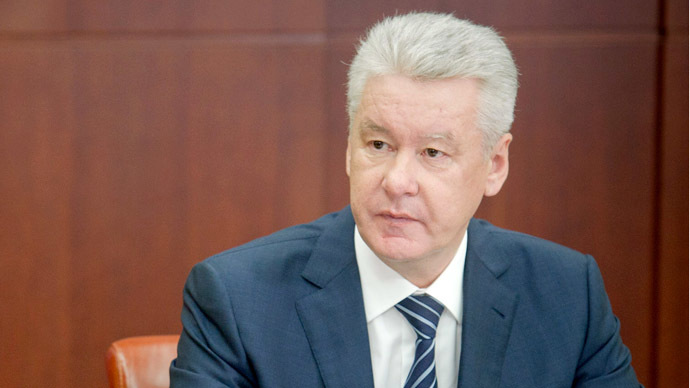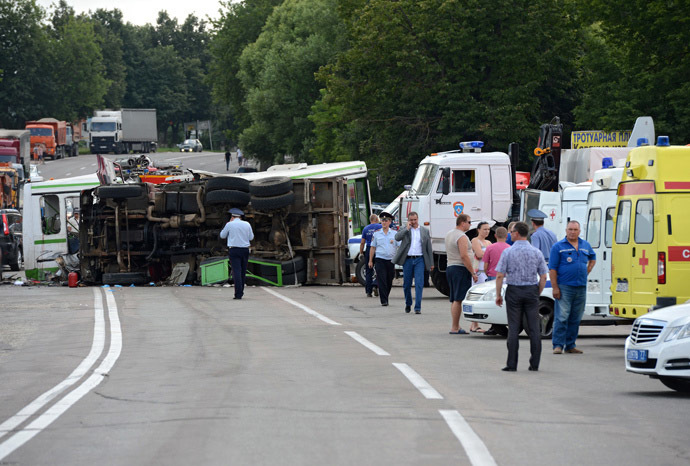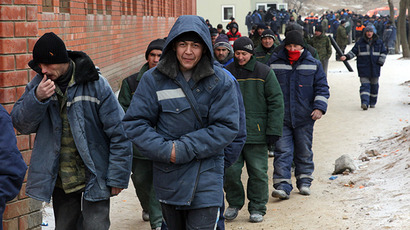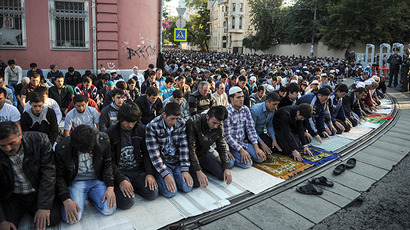Acting Moscow mayor wants foreigners expelled over administrative offenses

Sergey Sobyanin has asked the Moscow city legislature to introduce laws that would allow the expulsion of foreign citizens for repeated administrative offenses, including violation of traffic rules.
The acting mayor also suggested barring the expelled foreigners from reentering Russia forever.
Another suggestion was that all foreigners employed as drivers only be allowed behind the wheel after receiving a Russian driving license. Attempting to skip this procedure would be punished by a two-year ban on receiving such a document. Sobyanin also asked the city legislature to pass the suggested changes as soon as possible.
The anti-migrant moods are becoming popular as the city prepares
for the mayoral elections - the first since 2003. Last year the
Federal Migration Service estimated the number of illegal
migrants in Russia as a whole at 3 million, but the press and
independent analysts said that the real figures must be several
times higher.
In 2012, Sobyanin told reporters that there were four times more
illegal immigrants in the city than legal, and as the current
quota on foreign workers in Moscow is 200,000, this must mean
that there are 800,000 people living and working without permits
or registration.
As Moscow is one of the most rapidly developing regions in the country, the main flow of migrants, both legal and illegal, is directed there, causing irritation to local law enforcers, bureaucrats and ordinary voters.
Another factor that called for action from the city authorities was the recent traffic accident in which a gravel-laden truck with an Armenian driver rammed a bus on a Moscow ring road, killing 18 people and injuring about 30.

Sobyanin has blasted illegal immigration before and since his recent voluntary resignation, which paved the way for the September 8 mayoral poll. He was among those politicians who suggested the introduction of a visa regime with the ex-Soviet republics of Central Asia – the main source of cheap labor for Moscow construction sites, street cleaning and the services sector.
After his appointment to the mayoral post in 2011, Sobyanin stated that he was against the Asian workers’ permanent residence in the city, suggesting that they work in shifts and spend more time at home.
Another candidate, opposition blogger Aleksey Navalny, also tried to capitalize on anti-migrant sentiments and, using his trademark internet presentations, accused the current city authorities of making huge profits off the backs of illegal Asian workers. He then promised that such practice would end with his election apparently suggesting that without bureaucrats’ help the illegal migrants would not be able to infiltrate the city.
Other candidates also made similar promises.
For example, Sergey Mitrokhin of the liberal party Yabloko suggested that city communal sector was the main employer of illegal migrants. The politicians said that if he is elected city services would publish full lists of their workers and citizens could initiate a probe if they suspected that builders or janitors were of different ethnic groups than stated in these lists.
Such election programs are hardly surprising given the overall sentiments of the voters.
Early this week, the All-Russian Public Opinion Research Center published the poll results that indicated that the majority of Russians saw foreign nationals as the most real threat to the country. Thirty-five percent of those polled hold that in future the Russian Federation will be populated by foreigners. In comparison, 28 percent thought the main threat to come from “environmental disasters and terrorist attacks” and 24 percent were worried by possible depletion of energy resources and the conflict among the national elite.














